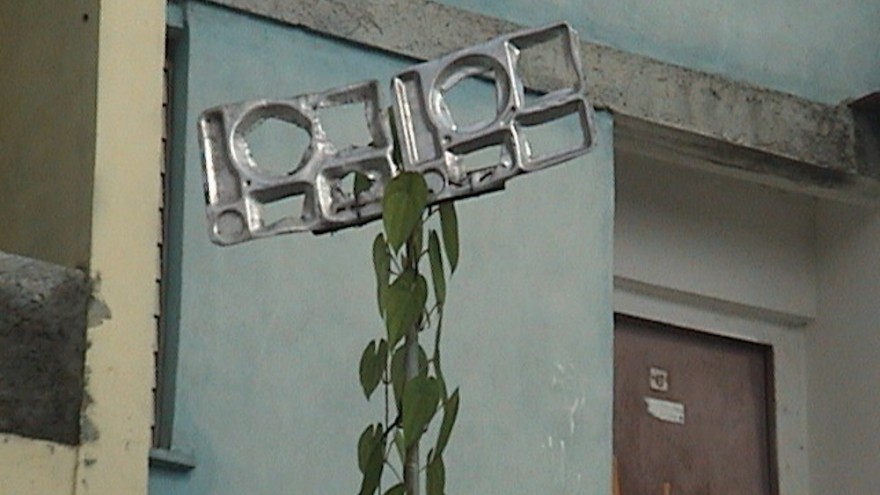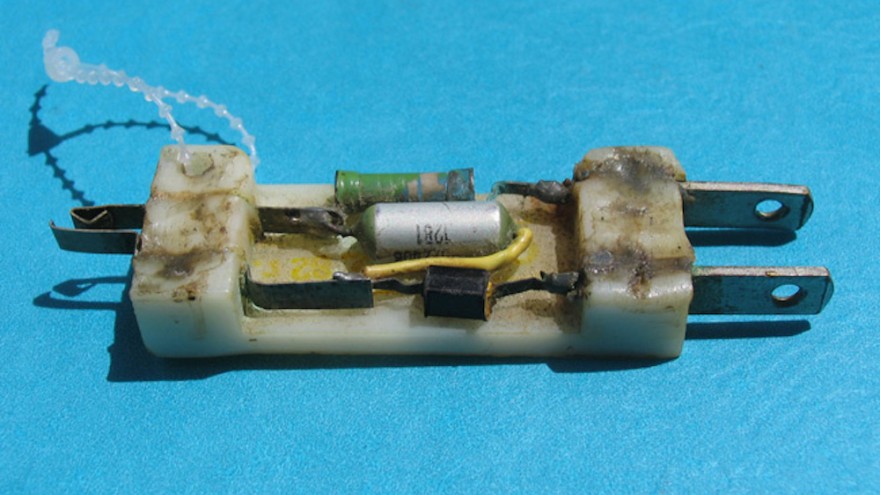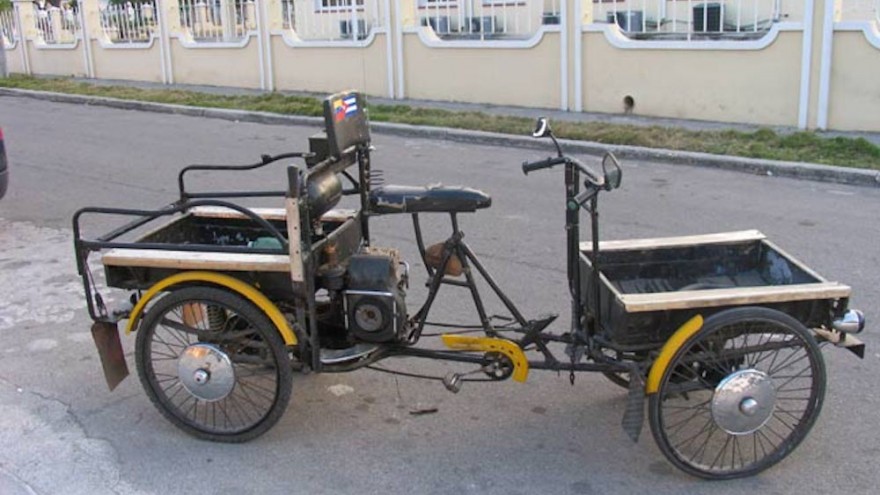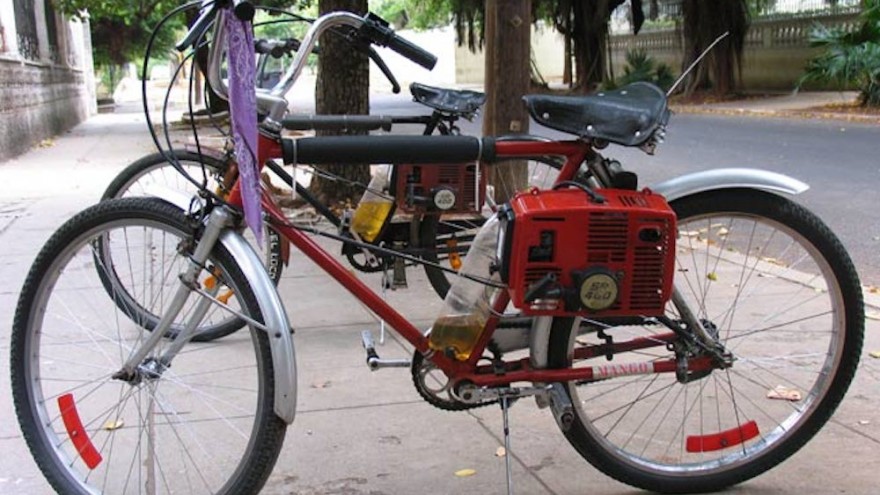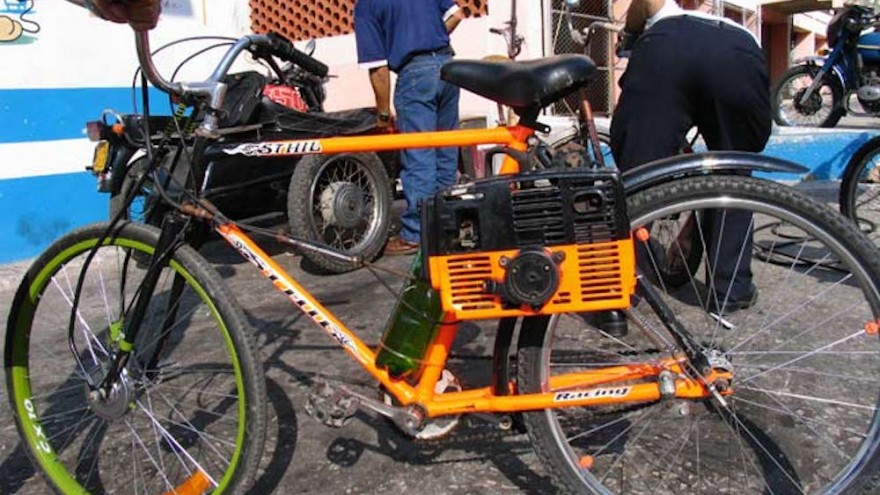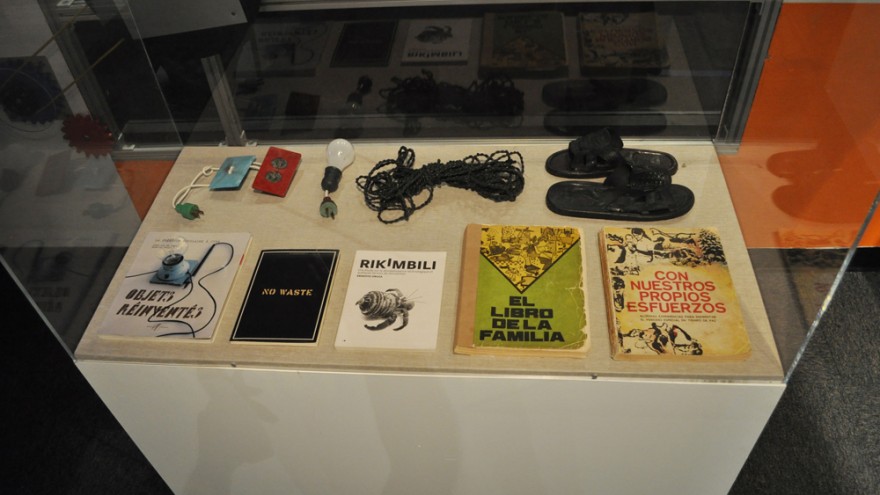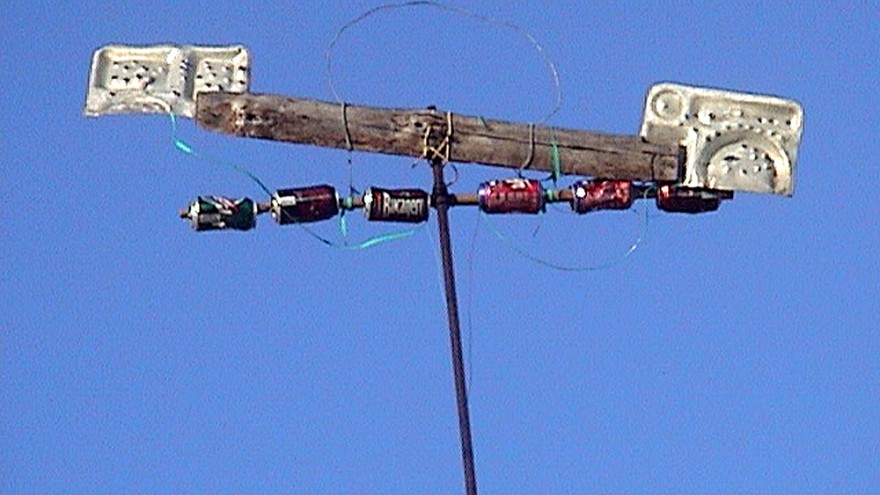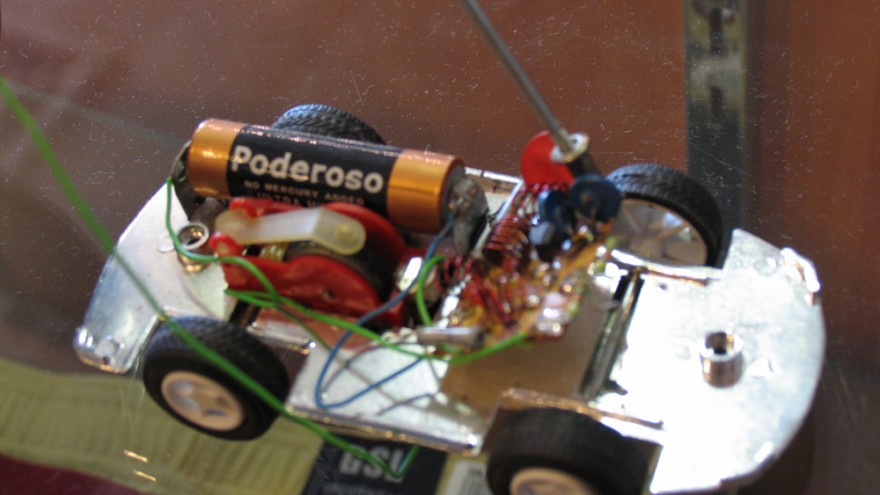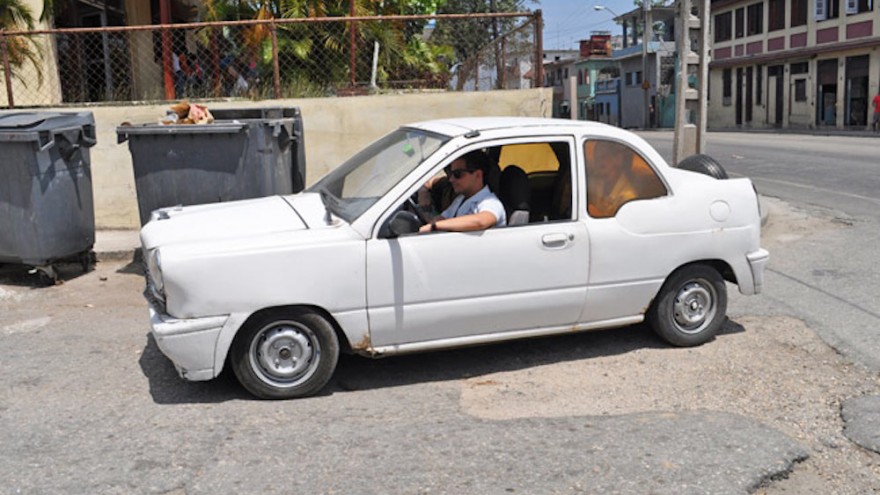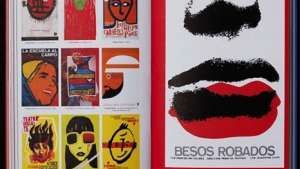From the Series
For 30 years, Cubans remained isolated from trade after the United States cut off diplomatic ties in 1961. The country’s crippled economy, and a life rife with struggle and shortage bred a generation of amateur inventors, designers and welders who push the limitations of everyday objects to make otherwise inaccessible necessities.
Cuban artist and designer Ernesto Oroza spent more than a decade travelling across Cuba, collecting, and photographing these inventions to study what he calls the “technological disobedience.”
“Industrial products were tinkered with and examined by hand,” Oroza says of the inventions. “Cubans dissected the industrial culture, opening everything up, repairing and altering every type of object.”
With limited resources, Cubans transformed the bottoms of cars, turning them into boats. They grill meat on metal chairs, and fashion TV-antenna from metal food trays. Oroza contextualised these machines as part of an exhibition, documenting the “technological disobedience” movement.
Of the movement, Oroza says Cubans strip the identities of day-to-day objects in order to improvise, invent, re-invent, and repair.
“There is a reinterpretation of technology and so much knowledge of electronics, engineering and so on,” he says. “People always try to go beyond and create new things.”
In an interview with online magazine Motherboard, Oroza describes the discovery of a makeshift machine used to recharge non-rechargeable batteries. He says the improvised device was made to keep the batteries of hearing aids charged.
“As the crisis became more severe, people’s creativity grew more powerful, and everywhere you looked you saw solutions to the needs that people faced all the time, in every aspect of life.”
US President Barack Obama re-established diplomatic relations with Cuba on 1 July 2015 and reopened its embassy in Havana that same month.

